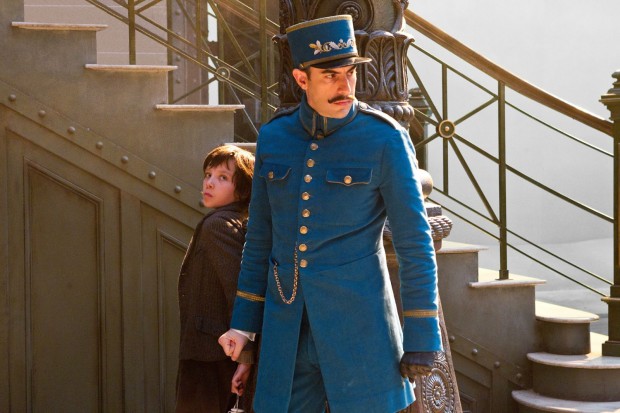
This review can also be found in the December first edition of the Daily Targum: http://www.dailytargum.com/inside_beat/film/hugo-a/article_4a205b12-1bcf-11e1-8f0e-001a4bcf6878.html
By Spence Blazak
With his latest endeavor, director Martin Scorcese takes the audience into a world far from his usual, a crime filled town on the Eastern Seaboard. In Hugo, he tells his story in a Paris train station during the 1930's, a world of mist, machines, movies, and mustaches. From its performances to its cinematography and from its storytelling to its charm, Hugo is the reason that people still go to the movies.
Hugo Cabret is a young orphan who lives in the walls of a Paris train station tirelessly climbing through the catacombs and winding the station’s clocks. As his late uncle told him, "Time is everything." Hugo also steals to survive, whether a croissant from a pastry cart or cogs and gears from a station toy merchant (Ben Kingsley). To keep himself going, the boy devotes his life to fixing a mechanical man powered by clockwork and unlocking the automaton’s secrets, hoping that they contain a message from his father.
Adapted from the children's book The Invention of Hugo Cabret, the film is a perfect example of how to do an adaptation right. Scorcese took the enchanting children's book and expanded it, fleshing out characters, adding in real world themes, and accentuating the immense weight of the world that every character carries on their shoulders. Hugo is not just about the adventure of a young boy, but also the internal struggle of coming to terms with the past that unites all people. For instance, the Station Inspector (Sacha Baron Cohen) is more than the one dimensional villain of the graphic novel and is now a man who feels that his war injury has demasculinized him. He in turn tries to compensate by relentlessly capturing all the orphans who run through the station and sending them to the vile orphanage. Truly excellent character background for what is, ostensibly, a kid’s movie.
As for the performances, they are exactly what the movie requires. Each character says their lines like they are savoring a piece of delicious candy, cherishing every single bite. Jude Law as Hugo's father and Christopher Lee as a bookshop merchant particularly excel at this. But as good as the adults are, the children are astounding. Asa Butterfield looks like he has been at it for decades while portraying Hugo, always keeping a sense of innocence, hope, and wonder about him. Chloe Grace Moretz plays Hugo's friend Isabelle with the same competent understanding of the craft.
This is a great testament to the prowess of Martin Scorcese's directing, because giving children direction is generally considered one of the most unrewarding and difficult parts of filmmaking. On top of this, he uses the camera beautifully, constructing streams of long running tracking shots that glide through the train station so delicately that it looks like choreography. He also gives the film a beautiful look by filling the frames with mist and smoke, the same technique that the Old Masters used to give paintings the feeling that something is hidden underneath their surface.
Hugo's strength lies in the fact that it succeeds as both an actual story as well as the way in which it is told. When 3D was first getting big a year or two ago, Avatar was considered the perfect use of the technology and the trailblazer for the potential the new medium had. There is one problem with this: Avatar wasn't really that good a story. Cool, but not worthy of all the hype. Hugo should be considered that trendsetter when the history books come out, because it just might be truly flawless.
If a one star movie about a child’s quest for self discovery (....I'm trying here...) is Unaccompanied Minors and a 3 and a half star one is Home Alone, then Hugo is a solid 4 star masterwork.
No comments:
Post a Comment